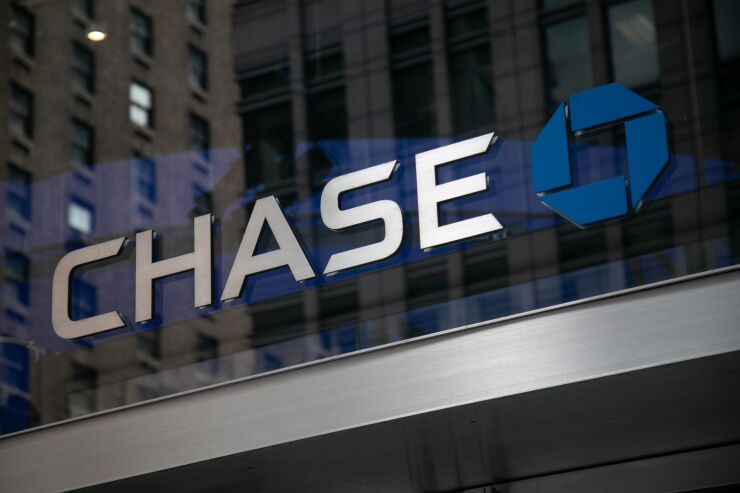Coming up on one month in office, President Donald Trump has made quick work of the banking system through new regulatory appointments and legislative moves that seek to unwind many Biden-era policies. Executives juggling one change after the next are left wondering when the dust will settle.
Big questions such as who would take top billing at the Consumer Financial Protection Bureau have begun to come into focus, as Former Treasury Secretary Scott Bessent was
Bessent wasted no time
Most recently, Office of Management and Budget Director Russell Vought has succeeded
Read more:
In the background of the governmental shifts, bank leadership teams have been facing challenges of their own.
The Toronto-based TD Bank Group, which has been weathering the $3 billion anti-money-laundering shortcomings of its American subsidiary over the past few months, recently announced its plans to
Wells Fargo and the labor union saga entered a new chapter this month, as members of Wells Fargo Workers United-CWA filed unfair labor practice charges against the bank for allegedly refusing to bargain with the cohort of employees.
The San Francisco-based bank reported some positive news in recent weeks, as it was released from three consent orders —
Read more:
The newest variable from the Trump administration is the future of the carried interest loophole, which allows partners of investment funds to categorize payments for services rendered as investment gains and therefore pay less in taxes.
Dive into the latest news from the top banks below.

Wells Fargo faces allegations of stonewalling unionizing employees
Members of a unit within Wells Fargo's conduct management intake team, who are working to unionize under the Communications Workers of America, recently launched a suit against the bank for allegedly refusing to bargain with the collective of employees.
The
Wells' representatives outlined in a letter that since the results of the December vote have yet to be certified by the NLRB, the bank is under no legal obligation to bargain with the group.
"Of course, if after appeals are concluded, the CWA were to conclusively become the certified bargaining representative of the unit employees on the conduct management intake team, then Wells Fargo would meet its legal obligations to bargain in good faith and provide relevant responsive information to the CWA as may be requested," Wells' lawyers said in a letter sent to CWA earlier this month.
Read more:

Could Trump kill the carried interest loophole?
Partners of investment funds have long enjoyed the benefit of the carried interest loophole, which allows them to claim payments for services rendered as investment gains and therefore pay lower taxes. But White House officials say Trump is working to end that provision.
There have been numerous efforts by Democratic policymakers to address this provision with introductions of the
These attempts have failed to gain significant momentum, but White House press secretary Karoline Leavitt told reporters earlier this month that Trump was mulling the idea in talks with his Republican constituents — adding to his other tax priorities surrounding Social Security, overtime pay and more.
Read more:

Energy lending booming among banks following industry ESG changes
Banks bullish on energy lending are emboldened by
The $79.3 billion-asset Comerica in Dallas and the roughly $50 billion-asset
Comerica's energy loan portfolio was up 8% year over year to $1.5 billion from credit extensions to oil and gas production companies, while Frost Bank's commercial loan total also grew by 8% when compared to the year-ago period. Frost's portfolio was advanced by a 20% jump in energy loans.
"I think that the economy has been really picked up, and activity has really picked up after the election," Chairman and CEO Phillip Green told analysts on an earnings call. "I hate to use the word animal spirits, but those find their way into people doing projects, and that's a real thing."
Read more:

JPMorgan Chase wades deeper into Alabama market
Executives with
Jennifer DiSalvo, who has led the bank's branch expansion in the state for the past three years and is an Alabama native herself, told American Banker's
"I can't tell you how many people come in that have moved [from other parts of the country] that are like, 'We've been waiting for you to be here for 10 years,'" DiSalvo said. "We already have such a footprint, as far as customers that have credit cards with us or that banked with us … we've had a great response to being in Alabama from those clients, and word has really spread."
Read more:

Lowered unemployment rate plus fewer added jobs equals confusion for Fed
The latest data from the U.S. Bureau of Labor Statistics showed a 10-basis-point drop in the unemployment rate to 4% and roughly 143,000 new jobs added in January, against the 169,000 predicted by market experts.
Members of the Federal Open Market Committee expecting obvious signals for labor market weakening or inflationary declination will be hard-pressed to find any for last month.
Following last month's decision by the FOMC to keep the target interest rate
"Now, policy is meaningfully less restrictive than it was before we began to cut. It's 100 basis points less restrictive," Powell said.
Read more:





